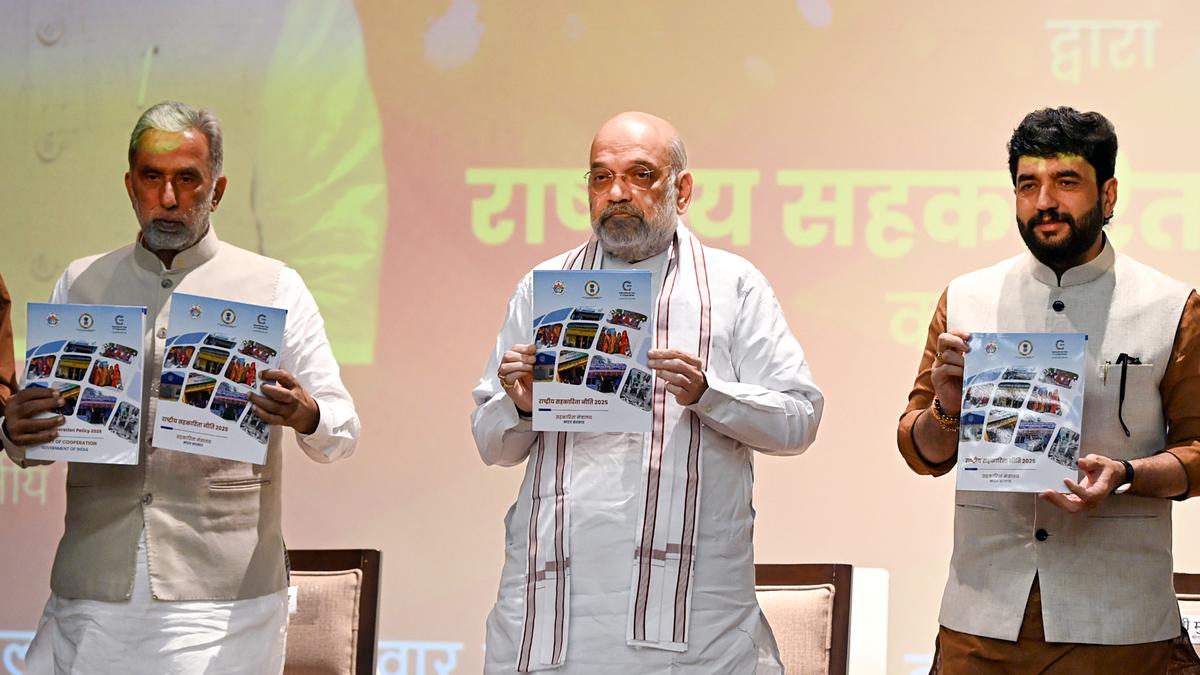Now Reading: New Cooperative Policy Centralises Authority, Dilutes State Rights: Samyukt Kisan Morcha
-
01
New Cooperative Policy Centralises Authority, Dilutes State Rights: Samyukt Kisan Morcha
New Cooperative Policy Centralises Authority, Dilutes State Rights: Samyukt Kisan Morcha

Quick Summary
- Event: Union Home Minister Amit shah unveiled the ‘national Cooperation Policy-2025’ (NCP) in New Delhi on Friday.
- Criticism: The Samyukt Kisan Morcha (SKM), an alliance of farmers’ organizations, alleged that NCP violates the Constitution of India by centralizing power and infringing upon State rights under entry 32 of the State List in Schedule VII.
- Key concerns by SKM:
– Exclusion of provisions for agricultural modernization,cooperative farming,or collective marketing networks.
– Favors corporate interests over the rights and livelihoods of farmers and workers.
– Facilitates corporate control over pricing, agriculture, dairy, horticulture, fisheries sectors.
- Legal Argument: SKM referenced the Supreme Court ruling on Amendment IXB to claim constitutional violations for attempting centralization without adequate ratification by State legislatures.
- Demand: SKM urged political parties and State governments to oppose NCP 2025 as harmful to cooperative federalism.
images included:
!80/IMGFarmersstageasit-210MDPMK77.jpg”>Farmers protest representation
!Read more here.
Indian Opinion Analysis
The unveiling of NCP 2025 has triggered strong opposition from farmer groups like SKM who perceive it as undermining cooperative federalism enshrined in India’s Constitution. their legal reasoning revolves around established rulings regarding cooperative societies being primarily under State jurisdiction unless proper procedural ratification is undertaken at a Constitutional amendment level.This raises significant questions about adherence to procedural soundness when implementing policies at a national scale.From an economic perspective, SKM’s argument highlights concerns related to potential dominance of corporate entities over resources traditionally managed through decentralized cooperatives. If valid implementation gaps persist-especially regarding modernization incentives for agriculture-states dependent heavily on agrarian economies could face systemic challenges.Additionally, resistance from states may lead to further debates on balancing national policy objectives with local governance autonomy.
The friction between centralized policy formulation versus regional empowerment serves as a reminder that India’s approach toward growth must consistently weigh constitutional principles alongside socio-economic realities. Whether constructive resolutions emerge remains uncertain but pressing given implications for millions reliant on agriculture-based livelihoods.

























